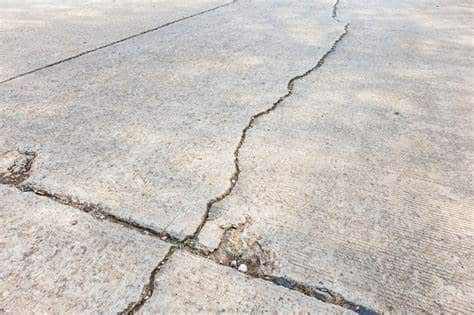How To Repair Minor Cracks In Concrete In Chula Vista?

How To Repair Minor Cracks In Concrete In Chula Vista?
Concrete is a durable and versatile construction material, but over time, it can develop minor cracks due to various factors like temperature fluctuations, settling, or heavy loads. While these cracks may seem inconsequential at first, if left unattended, they can worsen and lead to more extensive damage. Fortunately, repairing minor cracks in concrete is a straightforward DIY task that can prevent further deterioration. In this article, we will explore five effective ways to repair minor cracks in concrete.
-
Use Concrete Crack Sealers
One of the easiest and most common methods to repair minor cracks in concrete is by using concrete crack sealers. These sealers are readily available at hardware stores and come in various forms, including liquid, caulk, or epoxy. To apply, clean the crack thoroughly, removing any debris or loose concrete. Then, fill the crack with the sealer, ensuring it penetrates the entire depth of the crack. Smooth the surface with a trowel or putty knife, and let it dry according to the manufacturer’s instructions. This method is suitable for cracks up to 1/2 inch wide.
-
Concrete Patching Compound
For slightly larger cracks, a concrete patching compound is an excellent option. This material is specifically designed to fill and repair cracks and can handle gaps up to about 1 inch wide. To use a patching compound, clean the crack as mentioned before and moisten it with water. Apply the compound, making sure it is level with the surrounding concrete surface. Use a trowel to smooth and feather the edges, and then allow it to cure as directed. Once dry, the patching compound will provide a seamless finish.
-
DIY Cement Mix
If you prefer a more hands-on approach, you can create your own DIY cement mix to repair minor cracks in concrete. Mix one part Portland cement with three parts sand, and add enough water to create a thick paste. Clean and dampen the crack before applying the mixture. Press it into the crack and smooth the surface with a trowel. Allow it to cure, keeping it damp for a few days by misting it with water occasionally. This method works well for cracks up to 1/2 inch wide and is cost-effective.
-
Polyurethane Injection
Polyurethane injection is a more advanced method for repairing minor cracks in concrete and is suitable for cracks that may be difficult to access from the surface. It involves injecting a polyurethane foam into the crack, which expands and effectively seals it. This method is highly effective for waterproofing and preventing further moisture infiltration. It is often used for basement cracks and can accommodate a range of crack widths.
-
Reinforcement with Rebar or Wire Mesh
For structural cracks that require additional strength and stability, reinforcing the repair with rebar or wire mesh may be necessary. After cleaning and filling the crack with an appropriate sealer or patching compound, embed the reinforcement material into the repair material. This method provides added structural integrity and is commonly used for cracks in driveways, sidewalks, or other high-traffic areas.
FAQs
Can I Ignore Minor Cracks In My Concrete?
It is not advisable to ignore minor cracks in concrete, as they can worsen over time, leading to more extensive damage. Repairing minor cracks promptly can prevent further deterioration and potentially save you from costly repairs in the future.
When Should I Consider Professional Help For Concrete Crack Repairs?
If you are dealing with extensive cracks, cracks in structural elements, or are unsure about the severity of the damage, it is advisable to consult a professional concrete contractor. They can assess the situation and provide appropriate solutions.
How Can I Prevent Future Cracks In My Concrete Surfaces?
To prevent future cracks, ensure proper concrete installation with appropriate expansion joints and control joints. Regularly maintain your concrete surfaces, avoid heavy loads in concentrated areas, and protect them from extreme temperature fluctuations.
Conclusion
Repairing minor cracks in concrete is a crucial maintenance task that can extend the life of your concrete structures and prevent costly repairs down the road. Whether you choose concrete crack sealers, patching compounds, DIY mixes, polyurethane injection, or reinforcement methods, addressing these cracks promptly will help maintain the integrity and appearance of your concrete surfaces for years to come. Don’t delay—take action to repair those minor cracks today! Call E Concrete Contractors at (619) 993-1758 right now, and we’ll help you out!
Contact us today at (619) 993-1758, and E Concrete Contractors will get you!

